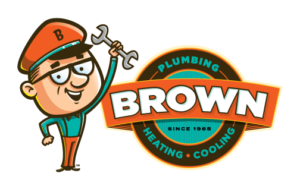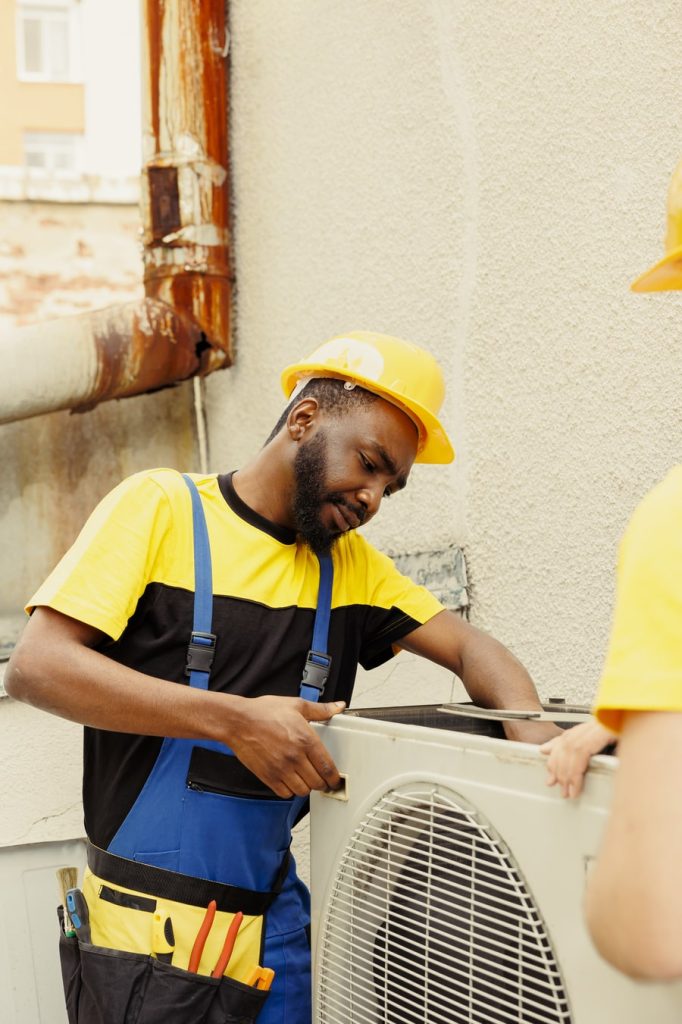Living on Florida’s West Coast comes with its own set of challenges, especially when it comes to maintaining your HVAC system.
We will explore the importance of HVAC maintenance and how it can benefit you in the long run. From improving energy efficiency to increasing the lifespan of your equipment, regular maintenance is key.
We will also discuss common maintenance tasks, how often they should be performed, signs that maintenance is needed, and tips for choosing the right HVAC maintenance company in the area.
Stay tuned to learn more about the importance of regular HVAC maintenance on Florida’s West Coast.
Why is HVAC Maintenance Important?
HVAC maintenance is crucial for ensuring optimal performance of your heating, ventilation, and air conditioning system on Florida’s West Coast. Brown Heating, Cooling, and Plumbing provide professional maintenance services that extend the lifespan of your HVAC system, improve energy efficiency, and maintain indoor air quality.
Regular HVAC maintenance not only keeps your system running smoothly but also helps in preventing unexpected breakdowns. By scheduling routine inspections and tune-ups, you can identify potential issues early on and address them before they turn into major problems. This proactive approach not only reduces the need for costly repairs but also enhances the overall energy efficiency of your HVAC system.
It’s recommended to follow a seasonal maintenance routine, such as changing filters regularly, cleaning ducts, and ensuring proper insulation. Professional inspections and timely replacements of worn-out parts are key to ensuring customer satisfaction and maximizing the longevity of your HVAC system.
Improves Energy Efficiency
Regular HVAC maintenance plays a key role in boosting energy efficiency, helping your system operate optimally and cost-effectively. By ensuring that your HVAC system is well-maintained, you can enhance indoor air quality, control humidity levels, and optimize the performance of your thermostat.
Proper maintenance not only improves energy efficiency but also reduces energy consumption, ultimately lowering utility bills. When your HVAC system is well-serviced, it operates more smoothly, using less energy to achieve the desired indoor climate. This not only benefits your wallet but also the environment by decreasing your carbon footprint.
Well-maintained HVAC systems help in maintaining consistent indoor air quality, preventing the buildup of pollutants and allergens that can impact respiratory health.
Increases Lifespan of Equipment
Routine HVAC maintenance significantly extends the lifespan of your equipment, ensuring that your HVAC system remains reliable and efficient throughout its operational years. Trusting experienced and professional technicians for maintenance services can keep your system in top condition.
These expert technicians have the training and knowledge to identify potential issues before they escalate, thereby preventing costly breakdowns and repairs. By regularly servicing your HVAC system, you not only optimize its performance but also contribute to a more energy-efficient and environmentally sustainable home. Scheduled maintenance allows for the thorough cleaning of components, ensuring that air quality is maintained at a high standard, and promoting a healthier indoor environment for you and your loved ones.
Reduces Risk of Costly Repairs
By investing in regular HVAC maintenance, you can mitigate the risk of unexpected breakdowns and costly repairs. Professional technicians can identify and address potential issues early, ensuring that your system operates smoothly and minimizing the need for emergency repairs.
Preventive maintenance plays a crucial role in extending the lifespan of your HVAC system. Trained technicians conduct thorough inspections, checking for wear and tear, leaks, or any signs of malfunction. This proactive approach not only prevents system failures but also helps in maintaining optimal energy efficiency.
In the event of a breakdown, having access to 24/7 emergency services ensures that expert help is just a call away, offering immediate assistance to resolve critical issues promptly and effectively.
Improves Indoor Air Quality
Effective HVAC maintenance contributes to enhanced indoor air quality by ensuring that ductwork is clean, filters are replaced regularly, and the entire system operates efficiently. This maintenance approach helps in reducing allergens, pollutants, and contaminants in your indoor environment.
Regular HVAC inspections and timely filter replacements play a vital role in maintaining optimal indoor air quality. By addressing issues promptly and ensuring proper upkeep of your HVAC system, you can create a healthier living or working environment.
It is recommended to schedule professional HVAC maintenance at least once a year to prevent the buildup of dust, mold, and other harmful particles in your ductwork. Using high-quality air filters and changing them according to manufacturer guidelines can significantly improve air cleanliness and reduce respiratory issues caused by poor indoor air quality.
What are the Common HVAC Maintenance Tasks?
Routine HVAC maintenance involves several essential tasks to keep your system running smoothly. Common maintenance tasks include changing air filters, cleaning condenser coils, checking refrigerant levels, and inspecting ductwork. Brown Heating, Cooling, and Plumbing offers expert maintenance services tailored to your system’s needs.
Changing air filters is crucial to ensure proper airflow and reduce strain on your HVAC system. Dirty filters can lead to decreased efficiency and indoor air quality.
Cleaning condenser coils helps maintain efficient heat transfer while checking refrigerant levels ensures optimal cooling performance.
Inspecting ductwork is essential for even air distribution throughout your home. By following these steps diligently, you can prolong the life of your HVAC system and prevent costly repairs down the road.
Changing Air Filters
Regularly changing air filters is a crucial maintenance task for both residential and commercial HVAC systems. Clean filters promote efficient airflow, reduce strain on the system, and improve indoor air quality. This routine task helps prevent breakdowns and ensures consistent performance.
When it comes to knowing when to replace filters, it’s generally recommended to do so every 1 to 3 months, depending on usage and filter type. For households with pets or allergies, more frequent replacement may be necessary. Replacing filters is a simple yet effective way to maintain the system’s efficiency and prolong its lifespan. By keeping filters clean, you not only save energy and money but also ensure that the air circulating in your space is cleaner and healthier to breathe.
Cleaning Condenser Coils
Cleaning condenser coils is a vital maintenance task that ensures optimal heat exchange in your HVAC system. Regular cleaning prevents dirt buildup, improves cooling efficiency, and reduces the risk of system malfunctions. This task is essential for the overall health and performance of your system.
Dirty condenser coils can lead to reduced cooling performance, increased energy consumption, and potentially costly repairs if neglected. To clean the coils safely and effectively, start by turning off the power to the HVAC system.
Use a soft brush or vacuum to remove debris gently, and then spray the coils with a coil cleaner and rinse with water. Remember to straighten any bent fins to ensure proper airflow.
By keeping your condenser coils clean, you can maintain optimal system efficiency, extend the lifespan of your HVAC system, and save on energy costs in the long run.
Checking Refrigerant Levels
Monitoring and maintaining proper refrigerant levels in your HVAC system is essential for efficient cooling and heating operations. Qualified technicians can inspect refrigerant levels, detect leaks, and ensure that your system functions optimally without straining the compressor or affecting performance.
This regular maintenance not only extends the lifespan of your HVAC system but also helps in reducing energy consumption and costs. When refrigerant levels are low, the system has to work harder to achieve the desired temperature, leading to increased wear and tear on components. Professional technicians possess the skills and tools to accurately measure refrigerant levels, identify any issues, and either replenish or repair the refrigerant as needed. By entrusting these tasks to experts, you can rest assured that your HVAC system will continue to operate at peak efficiency.
Inspecting Ductwork
Regular inspection of ductwork is crucial for identifying leaks, blockages, or inefficiencies that can impact the performance of your HVAC system. Properly maintained ductwork ensures efficient airflow, balanced temperature distribution, and overall system reliability.
Routine inspections help in detecting common ductwork problems such as dirt and debris accumulation, mold growth, or damaged insulation, all of which can hinder proper airflow and decrease indoor air quality.
Addressing these issues promptly through professional repairs, such as sealing leaks, cleaning ducts, or replacing insulation, is essential to maintain optimal system efficiency.
Implementing preventive measures like regular filter changes, installing UV lights to combat mold, and ensuring proper insulation can prevent future ductwork issues and prolong the lifespan of your HVAC system.
How Often Should HVAC Maintenance be Performed?
Establishing a maintenance schedule for your HVAC system is essential to ensure consistent performance and longevity. Both residential and commercial systems require routine maintenance, with recommended schedules varying based on usage, system age, and environmental factors.
For residential setups, it is typically advised to have maintenance checks carried out at least once a year. In regions with harsh winters or summers, bi-annual inspections may be more appropriate to address the extra strain on the system. Commercial HVAC systems, being more complex and often servicing larger spaces, generally benefit from quarterly inspections to maintain efficiency. Regular maintenance not only prolongs the lifespan of the system but also enhances its energy efficiency, which can lead to significant cost savings over time.
Residential HVAC Maintenance Schedule
For residential HVAC systems, a recommended maintenance schedule includes routine inspections and tune-ups at least once a year. Seasonal checks before summer and winter are crucial to prepare the system for peak operation and ensure energy efficiency.
Regular inspections help in identifying and addressing potential issues before they escalate, ensuring the system runs smoothly.
Tune-ups involve cleaning, lubricating moving parts, and checking for any wear and tear to maintain optimal performance.
By adhering to a consistent maintenance plan, homeowners can prolong the lifespan of their HVAC system, avoid costly repairs, and improve indoor air quality.
The proactive approach of seasonal maintenance checks not only enhances energy efficiency but also minimizes the risk of unexpected breakdowns, especially when the system is under heavy use.
Commercial HVAC Maintenance Schedule
Commercial HVAC systems benefit from a structured maintenance schedule that includes regular inspections, filter replacements, and system tune-ups. Depending on the system size and complexity, commercial setups may require more frequent maintenance checks to ensure uninterrupted operation.
Regular inspections play a crucial role in detecting potential issues early on, preventing costly breakdowns, and improving overall system performance.
Filter replacements are essential in maintaining good indoor air quality and preserving the efficiency of the HVAC equipment. System tune-ups involve fine-tuning components to optimize energy efficiency and extend the lifespan of the system.
Tailoring maintenance schedules based on factors like system usage patterns and environmental conditions can help commercial establishments achieve peak operational efficiency and longevity of their HVAC systems.
What are the Signs that HVAC Maintenance is Needed?
Recognizing the signs that indicate HVAC maintenance is required can help prevent system failures and costly repairs. Common signs include strange noises, uneven heating or cooling, increased energy bills, and frequent breakdowns, signaling the need for immediate attention.
When strange noises emanate from your HVAC system, it could indicate issues with the blower motor or loose components. Uneven heating or cooling may point towards blocked air ducts or a malfunctioning thermostat. Increased energy bills often result from inefficient operation, while frequent breakdowns signal underlying problems that need addressing. Promptly addressing these warning signs through scheduled maintenance can enhance system efficiency, prolong its lifespan, and save you from unexpected expenses.
Strange Noises
Unusual sounds coming from your HVAC system, such as banging, screeching, or rattling noises, are clear indicators that maintenance is needed. Ignoring these noises can lead to system malfunctions, component failures, and costly repairs. Prompt attention from skilled technicians is crucial in resolving these issues.
Banging noises may indicate loose or damaged parts within the system, such as a broken blower wheel or motor mount.
Screeching sounds often suggest issues with the fan motor or belts that need lubrication.
Rattling noises could signal loose components or debris in the ductwork.
To efficiently address these noises, it is advised to schedule regular maintenance checks with qualified professionals who can diagnose the root cause and perform necessary repairs.
Timely maintenance not only ensures optimal system performance but also helps prevent further damage or system breakdowns.
Uneven Cooling/Heating
Inconsistent temperature distribution throughout your indoor space indicates a need for HVAC maintenance. Uneven cooling or heating can result from ductwork issues, system malfunctions, or thermostat inaccuracies, highlighting the importance of professional inspections and repairs to restore comfort.
Ductwork issues, such as leaks or blockages, can restrict the flow of air, leading to temperature inconsistencies in different rooms. Similarly, system malfunctions like dirty filters or malfunctioning components can hinder the HVAC system’s ability to regulate temperature effectively. Inaccurate thermostat settings or placement can also contribute to uneven cooling or heating.
To address these issues, it is crucial to schedule regular ductwork inspections, promptly repair any system malfunctions, and calibrate or replace thermostats as needed. By taking these proactive steps, you can ensure optimal heating and cooling performance in your home.
High Energy Bills
Unexpected spikes in energy bills without changes in usage patterns often indicate underlying HVAC issues. Poorly maintained systems consume more energy to operate efficiently, leading to increased costs. Addressing these maintenance-related issues can improve system efficiency and reduce energy expenses.
Regular maintenance not only enhances your HVAC system’s performance but also prolongs its lifespan. By scheduling routine check-ups and cleaning services, you can ensure that your system is running at its peak efficiency.
Keep an eye out for signs of energy inefficiency, such as uneven heating or cooling, strange noises, or increased dust around the vents. Timely maintenance can help you detect and address these issues before they escalate into costly breakdowns or repairs.
Investing in HVAC maintenance now can save you significant money in the long run.
Frequent Repairs
Experiencing frequent breakdowns or repairs with your HVAC system is a clear indication that maintenance is required. Continuous issues signal underlying problems that need professional attention to prevent further system malfunctions and costly repair expenses.
Not addressing these warning signs can lead to a snowball effect on the reliability of your HVAC system in the long run. Recurring breakdowns not only disrupt the comfort levels in your home but also result in increased operational costs due to inefficiencies. Prioritizing regular maintenance not only improves the performance and longevity of your HVAC unit but also enhances energy efficiency, leading to lower utility bills and a more comfortable indoor environment.
Choosing the Right HVAC Maintenance Company on Florida’s West Coast
Selecting a reputable HVAC maintenance company on Florida’s West Coast is essential for ensuring quality service and reliable repairs. Look for a company with experienced technicians, a proven track record, emergency services, and customer satisfaction guarantees to meet your residential or commercial HVAC needs.
Expertise is a key factor to consider when choosing an HVAC maintenance company. Evaluate the company’s experience in handling various HVAC systems and their ability to troubleshoot complex issues. Reliability is also crucial – opt for a company known for its dependable service and timely responses. Check if the company offers emergency services, especially important during extreme weather conditions. Customer reviews and testimonials can provide valuable insights into the level of satisfaction previous clients have experienced. Verify the company’s licenses and insurance coverage to ensure they meet industry standards and regulations.


